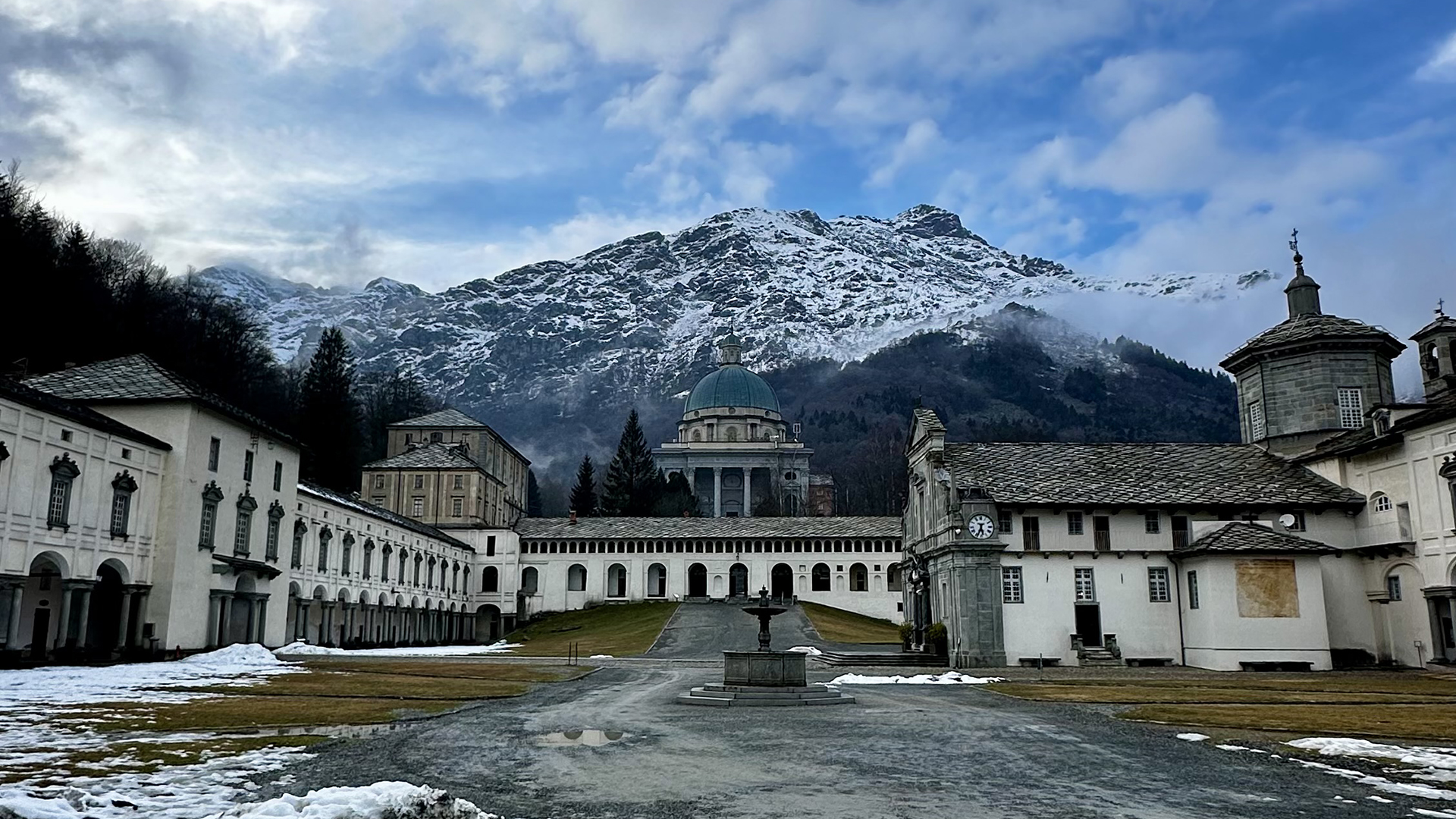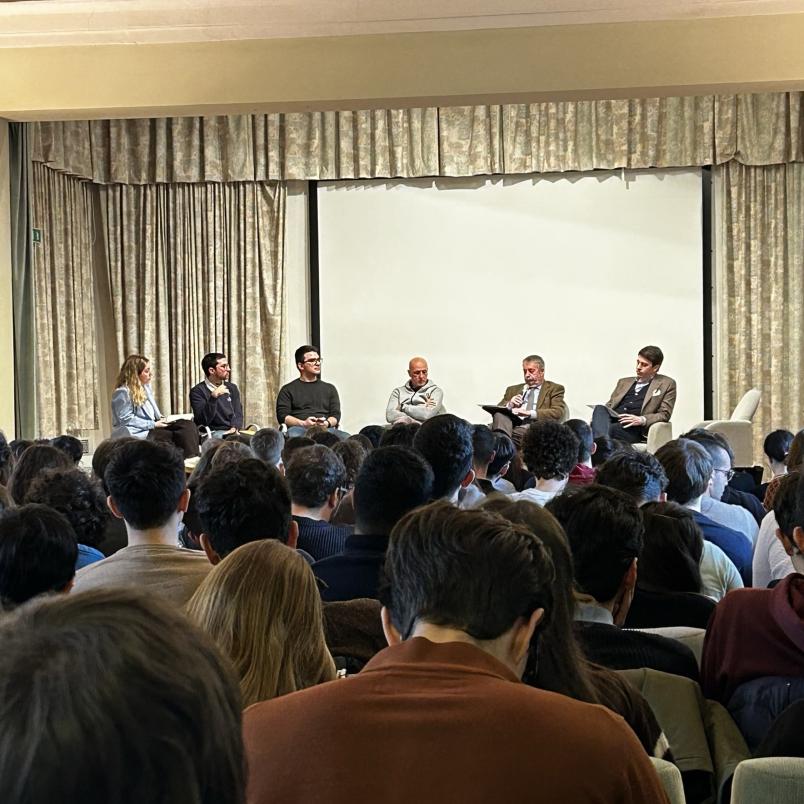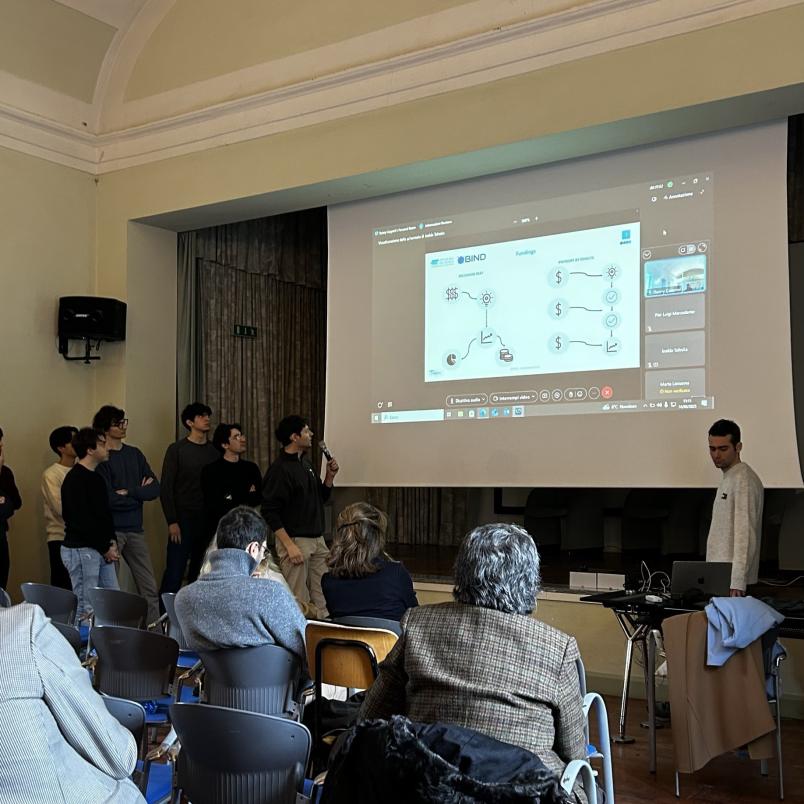
Alta Scuola Politecnica Winter School 2025 in Oropa

The Winter School of the Alta Scuola Politecnica (ASP), a path of excellence run jointly by the Politecnico di Torino and Politecnico di Milano, celebrated its 20th edition. Over 150 young talents from the two universities gathered from March 10th to 14th at the suggestive Santuario di Oropa, in the Biella area, for the school entitled ‘Anticipatory Innovation for Place-Based Prosperity’. The event was a true immersive experience, focused on innovation and social impact, which was also attended by over 30 students from the Politecnico di Torino's ‘Percorso Intraprendenti’, selected each year from among the most deserving to develop their potential.
Coordinated by Professor Mario Calderini, the 2025 edition tackled the complex and interconnected challenges of our time using an innovation-based approach. The main objective of the Winter School was to explore how anticipatory governance strategies can be applied to identify, assess and manage emerging challenges, market opportunities and risks, while preparing for future uncertainties. The students worked on real challenges with the aim of designing technological innovation clusters capable of generating positive social impact.

A variety of topics were covered during the week with panel presentations and practical sessions. Mario Calderini introduced the concept of governance of anticipatory innovation, while Egidio Dansero (Università di Torino) explored the geography, economy and culture of the Biella region. Andrea Rolando (Politecnico di Milano) discussed territorial stratification and heritage, followed by Giulia Piantoni (Politecnico di Milano) who lectured on Ecosystemic Innovation and Andrea Bonaccorsi (Università di Pisa) on Place-based policy making. Stefanie Kneer (Three Hills) presented collaborative models for innovation ecosystems, together with impact financing tools.
One of the highlights of the week was the visit to Banca Sella's SellaLab in Biella, where students were able to explore how tradition can be used to promote innovation. Keynote speeches by Pietro Sella and Angelica Sella of the Sella Group provided an overview of pathways and tools for spatial planning and development, while Josip Kotlar discussed innovation through tradition in family businesses.
After addressing the topic of territorial challenges, the students were divided into 21 groups and participated in a role-play in which they impersonated MagnoLab - a network of companies in the textile supply chain - and two randomly assigned stakeholders to explore their roles, map the ecosystem and understand how contextual factors influence the dynamics between stakeholders. Subsequently, integrating MagnoLab's impact objectives, the groups defined feasible solutions to address the challenges set by Banca Sella, outlining key interventions, expected results and the assumptions behind their impact path. The project concluded with the presentation of the solutions to external stakeholders and a final evaluation, which awarded the best proposals.
The 2025 ASP Winter School therefore provided students with tools and knowledge to tackle territorial challenges with an innovative and collaborative approach. The experience showed how anticipatory innovation can be a powerful tool to promote territorial prosperity by creating scalable and transferable solutions to other contexts.